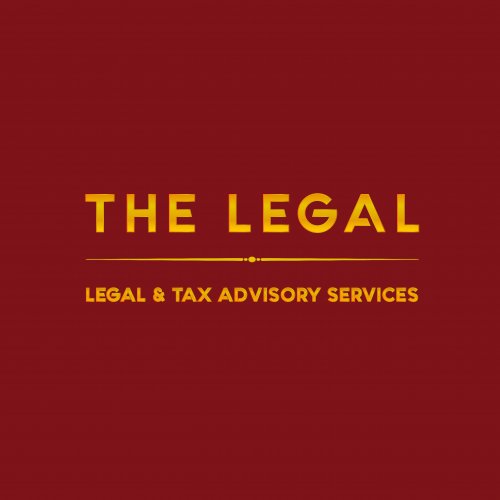Best E-commerce & Internet Law Lawyers in Thailand
Share your needs with us, get contacted by law firms.
Free. Takes 2 min.
Or refine your search by selecting a city:
List of the best lawyers in Thailand
Legal guides written by Smart Legal Solutions:
- Main Legal Measures to Protect Foreign Investment in Thailand
- The importance of the geographical indications for the Thai economy
About E-commerce & Internet Law in Thailand
E-commerce and Internet Law in Thailand govern a wide range of activities related to online businesses, digital transactions, and cyber interactions. With the growth of digital commerce, these laws focus on consumer protection, digital contracts, data privacy, intellectual property rights, and cybersecurity. Thailand's legal landscape in this area is gradually evolving to align with global standards, addressing issues such as online fraud, digital content regulation, and cross-border e-commerce challenges.
Why You May Need a Lawyer
Individuals and businesses may require legal assistance in E-commerce & Internet Law for various reasons. Common situations include:
- Establishing and structuring an online business in compliance with Thai regulations.
- Resolving disputes related to online contracts or transactions.
- Protecting intellectual property rights, such as trademarks and copyrights, in the digital sphere.
- Navigating issues related to data privacy and cybersecurity breaches.
- Handling consumer complaints and ensuring compliance with the Electronic Transactions Act.
- Dealing with defamation or other harms done via digital platforms.
- Cross-border trade issues, including customs and taxation for international e-commerce.
- Understanding advertising and marketing regulations for online platforms.
Local Laws Overview
Several key laws and regulations are particularly relevant to E-commerce & Internet Law in Thailand:
- Electronic Transactions Act: Governs digital contracts, providing legal recognition of electronic signatures and records.
- Personal Data Protection Act (PDPA): Establishes rules on how personal data should be collected, used, and protected.
- Computer Crimes Act: Targets offenses such as hacking, unauthorized data access, and online fraud.
- Intellectual Property Laws: Cover copyright, trademark, and patent protections in the digital environment.
- Consumer Protection Act: Provides guidelines to protect consumer rights in online transactions.
Frequently Asked Questions
What is the Electronic Transactions Act?
The Electronic Transactions Act grants legal status to electronic documents and signatures, facilitating digital commerce and removing barriers to online contracts.
How does the PDPA affect my online business?
The PDPA requires businesses to inform users about data collection practices, obtain consent, and ensure data security, impacting how online businesses handle customer data.
What should I do if my website is hacked?
If your website is hacked, it's crucial to respond swiftly by securing your site, assessing the damage, notifying authorities, and reaching out to legal counsel for further assistance.
Do online businesses need to register in Thailand?
Yes, online businesses must register with the Department of Business Development if they meet specific thresholds in terms of revenue or permanent business establishment.
How can I protect my online content from being copied?
You can protect your online content through copyright registration, and by setting up terms of use on your website to clearly state how content may be used by others.
Can I sell products online in Thailand without a local partner?
Foreign ownership and operation are subject to restrictions under the Foreign Business Act, but certain online activities can be conducted without a local partner depending on business type and sector.
Are there taxes for selling online in Thailand?
Yes, online sales are subject to VAT and income tax depending on the revenue generated and the legal status of the business
What are the penalties for data breaches under the PDPA?
Penalties include fines and possible imprisonment depending on the severity of the breach and whether there was intent or negligence involved.
How do I manage cross-border e-commerce issues?
Issues include compliance with local import/export laws, understanding VAT and customs duties, and ensuring product compliance with Thai regulations. Consulting with a legal expert is advised.
Where can I report online fraud?
Online fraud can be reported to the Technology Crime Suppression Division (TCSD) or through the Thai Police's online reporting system.
Additional Resources
For additional guidance, consider these resources:
- Ministry of Digital Economy and Society: Offers guidelines on digital regulations and legal compliance.
- Department of Intellectual Property: For queries related to protecting intellectual property online.
- Electronic Transactions Development Agency (ETDA): Provides information on electronic commerce regulation.
- Consumer Protection Board: Handles consumer rights and complaints.
Next Steps
If you need legal assistance in E-commerce & Internet Law in Thailand, the following steps can be helpful:
- Research Lawyers: Look for legal professionals specializing in E-commerce & Internet Law in Thailand.
- Consultation: Schedule a consultation to discuss your specific needs and legal questions.
- Documentation: Gather all relevant documents and information related to your case or business activities.
- Understand Costs: Discuss and understand legal fees and services offered by the lawyer.
- Regular Updates: Ensure you receive updates and clear communication throughout the legal process.
Lawzana helps you find the best lawyers and law firms in Thailand through a curated and pre-screened list of qualified legal professionals. Our platform offers rankings and detailed profiles of attorneys and law firms, allowing you to compare based on practice areas, including E-commerce & Internet Law, experience, and client feedback.
Each profile includes a description of the firm's areas of practice, client reviews, team members and partners, year of establishment, spoken languages, office locations, contact information, social media presence, and any published articles or resources. Most firms on our platform speak English and are experienced in both local and international legal matters.
Get a quote from top-rated law firms in Thailand — quickly, securely, and without unnecessary hassle.
Disclaimer:
The information provided on this page is for general informational purposes only and does not constitute legal advice. While we strive to ensure the accuracy and relevance of the content, legal information may change over time, and interpretations of the law can vary. You should always consult with a qualified legal professional for advice specific to your situation.
We disclaim all liability for actions taken or not taken based on the content of this page. If you believe any information is incorrect or outdated, please contact us, and we will review and update it where appropriate.
Browse e-commerce & internet law law firms by city in Thailand
Refine your search by selecting a city.

















